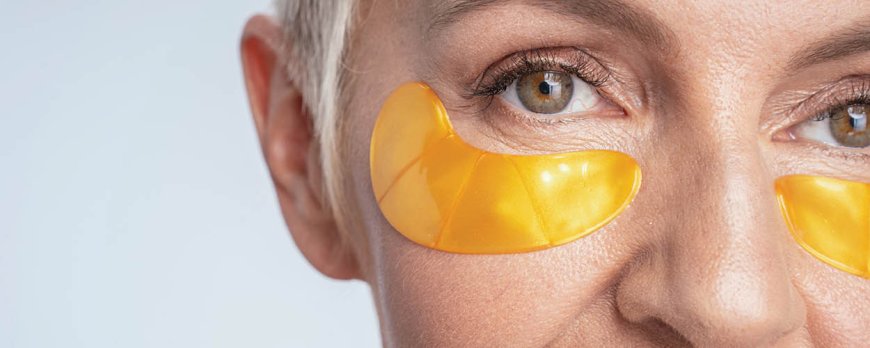What your skin says about your diet?
Unlock the secret language of your skin with our guide on 'What your skin says about your diet?' Discover how diet affects skin health and vitality.

What your skin says about your diet?
Your skin can be a reflection of your diet and overall health. The foods we consume play a significant role in the condition and appearance of our skin. Understanding the connection between nutrition and skin health is crucial for maintaining a radiant and healthy complexion.
Key Takeaways:
- Your skin can indicate underlying health conditions, with certain skin problems being linked to specific ailments.
- Poor food habits, such as consuming foods high in refined carbohydrates, can contribute to acne breakouts.
- A lack of collagen, elastin, protein, and protection from UV rays in the diet can lead to wrinkles and fine lines.
- Eating a healthy diet rich in antioxidants, fresh fruits and vegetables, fish, and nuts and seeds can promote skin health.
- Avoiding highly processed foods, refined carbs, and sugars can improve the health and appearance of your skin.
- Hydration is essential for maintaining proper skin health, and drinking water or green tea can help keep your skin hydrated.
- A diet rich in antioxidants can help fight free radicals, which contribute to skin damage and aging.
The Link Between Skin Conditions and Underlying Health Problems
Certain skin conditions can reveal underlying health issues. Your skin can be a window to your overall well-being, with many underlying health conditions first manifesting as skin problems. For example, the "butterfly" rash associated with lupus, acanthosis nigricans linked to diabetes, and necrobiosis lipoidica related to diabetes are all examples of how skin issues can indicate underlying health problems. Similarly, skin conditions like lichen planus and shagreen patches can be linked to hepatitis C and tuberous sclerosis, respectively. Furthermore, tripe palms, a rare condition, is often associated with lung cancer. Nephrogenic systemic fibrosis can also be triggered by dye used during MRI scans in individuals with kidney disease. However, it is important to note that most skin problems do not indicate any other underlying health issues.
Examples of Skin Conditions and Associated Health Problems:
- "Butterfly" rash - Lupus
- Acanthosis nigricans - Diabetes
- Necrobiosis lipoidica - Diabetes
- Lichen planus - Hepatitis C
- Shagreen patches - Tuberous sclerosis
- Tripe palms - Lung cancer
- Nephrogenic systemic fibrosis - Kidney disease
Acne breakouts can be a sign of poor food habits. Diets high in processed foods, refined carbohydrates, and sugars can promote inflammation that leads to acne. Foods like pizzas, French fries, and burgers have been shown to cause pimples. Wrinkles and fine lines, on the other hand, can be caused by a lack of collagen, elastin, and protein in the diet, as well as prolonged exposure to UV rays.
A healthy diet plays a crucial role in maintaining skin health. A diet rich in antioxidants from fresh fruits and vegetables can help fight free radicals and protect the skin from damage and premature aging. Including fish in your diet provides essential proteins and omega-3 fatty acids, which promote a smooth skin texture. Additionally, incorporating nuts and seeds into your meals can further enhance skin health. It is important to avoid highly processed foods, refined carbohydrates, and sugars, as they can have a negative impact on the health and appearance of your skin.
Staying hydrated is vital for healthy skin. Drinking an adequate amount of water and consuming green tea can help maintain proper skin hydration and promote a radiant complexion. By making healthier food choices and adopting a balanced diet, you can unlock the secrets to healthy and vibrant skin.
Acne and Poor Food Habits
Acne breakouts can be influenced by dietary choices. Certain foods, such as pizzas, French fries, and burgers, have been known to contribute to the development of pimples. These foods are typically high in refined carbohydrates, which can promote inflammation in the body that leads to acne formation. So, if you're struggling with acne, it may be worth taking a closer look at your food choices.
In addition to avoiding unhealthy, processed foods, it's important to incorporate a variety of nutrient-rich foods into your diet to support clear skin. Fresh fruits and vegetables are packed with antioxidants that help fight against free radicals, while fish provides essential proteins and omega-3 fatty acids that promote skin health. Including nuts and seeds in your diet can also contribute to a smoother skin texture.
Drinking plenty of water and green tea can help keep your skin hydrated, which is important for maintaining its health and appearance. Staying hydrated can also aid in flushing out toxins and promoting a clear complexion. On the other hand, it's best to minimize your intake of highly processed foods, refined carbs, and sugars, as these have been linked to skin problems and can contribute to acne breakouts.
Wrinkles and Fine Lines Caused by Diet
Your diet plays a role in the development of wrinkles and fine lines. The lack of certain nutrients in your diet can contribute to the premature aging of your skin. Collagen and elastin, two proteins that are essential for maintaining skin elasticity and firmness, can be negatively affected by a poor diet.
Exposure to ultraviolet (UV) rays from the sun can also accelerate the formation of wrinkles. When combined with inadequate nutrition, the effects on your skin can be even more pronounced. Consuming a diet low in antioxidants and lacking in protective nutrients can leave your skin more vulnerable to UV damage.
To combat these effects and maintain youthful-looking skin, it is essential to incorporate specific foods into your diet. Fresh fruits and vegetables, rich in antioxidants and vitamins, can help protect your skin from free radicals and reduce the appearance of wrinkles. Foods high in omega-3 fatty acids, such as fish, can help promote healthy skin texture and reduce inflammation that can lead to premature aging.
The Role of Collagen and Elastin
- Collagen: This protein provides structural support to the skin and helps maintain its firmness and elasticity.
- Elastin: Responsible for allowing the skin to stretch and snap back into place, elastin plays a vital role in preventing the formation of wrinkles and fine lines.
Avoiding highly processed foods, refined carbohydrates, and sugars is also crucial for maintaining skin health. These foods can contribute to inflammation and oxidative stress, leading to accelerated aging and the development of wrinkles. Staying hydrated by drinking an adequate amount of water or green tea can further support your skin's health and appearance by maintaining proper hydration.
Incorporating a nutrient-rich diet, full of antioxidants, proteins, and essential nutrients, can help prevent the formation of wrinkles and fine lines caused by diet. Making healthier food choices and taking care of your skin from the inside out will contribute to a more youthful and radiant complexion.

A Healthy Diet for Healthy Skin
Making healthy dietary choices can improve the health and appearance of your skin. Your skin is a reflection of your overall well-being, and what you eat plays a crucial role in maintaining its vitality. By incorporating certain foods into your diet, you can nourish your skin from within and enhance its complexion.
Key Nutrients for Skin Health
- Antioxidants: Fresh fruits and vegetables are rich in antioxidants, which help protect your skin from damage caused by free radicals. Berries, leafy greens, and citrus fruits are especially beneficial.
- Protein: Including fish, lean meats, and plant-based sources of protein like legumes and tofu in your diet can support the production of collagen and elastin, which are essential for maintaining firm and supple skin.
- Omega-3 Fatty Acids: Found in fatty fish, walnuts, flaxseeds, and chia seeds, omega-3 fatty acids help reduce inflammation and keep your skin hydrated, resulting in a smoother complexion.
It is also important to avoid certain foods that can have a negative impact on your skin. Highly processed foods, refined carbohydrates, and sugar can contribute to inflammation and acne breakouts. By minimizing your consumption of these foods, you can help keep your skin clear and blemish-free.
Stay Hydrated for Radiant Skin
In addition to a nutrient-rich diet, staying hydrated is crucial for maintaining healthy skin. Drinking an adequate amount of water throughout the day helps flush out toxins, keeps your skin moisturized, and promotes a radiant complexion. Green tea is another excellent beverage choice, as it is packed with antioxidants that can benefit your skin.
In conclusion, your diet plays a significant role in the health and appearance of your skin. By incorporating a wide variety of nutritious foods and staying hydrated, you can support your skin's natural functions and achieve a healthy, glowing complexion.

Foods to avoid for better skin
Certain foods can have a detrimental effect on your skin. By avoiding these foods, you can improve the health and appearance of your skin. Here are some of the common culprits:
- Highly processed foods: These foods are often packed with unhealthy additives, preservatives, and trans fats. They can contribute to inflammation in the body, leading to breakouts and dull skin.
- Refined carbohydrates: Foods like white bread, pasta, and pastries cause a rapid spike in blood sugar levels. This can trigger inflammation and break down collagen, resulting in premature aging and acne.
- Sugars: Consuming excessive amounts of sugar can lead to glycation, a process that damages collagen and elastin. This can cause wrinkles and sagging skin.
- Deep-fried foods: Fried foods are high in unhealthy fats, which can clog pores and contribute to acne breakouts. They can also lead to inflammation in the body.
- Dairy products: Some studies suggest that dairy products, particularly milk, may worsen acne due to their hormone content. If you notice a correlation between your skin breakouts and dairy consumption, consider reducing your intake.
Other dietary considerations
While these foods should be avoided, it's important to remember that everyone's skin is unique, and individual sensitivities may vary. Some people may find that certain foods affect their skin more than others. If you suspect a particular food is causing issues, try eliminating it from your diet and observing any changes in your skin health.
In addition to avoiding these harmful foods, maintaining a well-balanced diet is key for healthy skin. Focus on consuming a variety of fresh fruits and vegetables, lean proteins, whole grains, and healthy fats. Stay hydrated by drinking plenty of water and consider incorporating green tea, which is rich in antioxidants, into your daily routine.
By making conscious dietary choices and avoiding skin-damaging foods, you can nourish your skin from the inside out and achieve a healthy, radiant complexion.

Hydration for Healthy Skin
Staying hydrated is essential for maintaining healthy skin. Proper hydration helps to keep the skin moisturized, supple, and glowing. When you don't drink enough water, your skin can become dry, dull, and prone to irritation. To ensure optimal hydration, it is recommended to drink at least eight glasses of water per day.
The Benefits of Water:
- Water helps to flush out toxins from the body, promoting clearer skin.
- It aids in the transport of nutrients to the skin cells, improving overall skin health.
- Drinking water can help reduce the appearance of wrinkles and fine lines, as dehydration can contribute to premature aging.
In addition to water, green tea is also beneficial for skin hydration. Green tea is packed with antioxidants that help protect the skin from environmental damage and promote a healthy complexion. It can also help to reduce inflammation and redness, making it an excellent choice for those with sensitive or problematic skin.
The Power of Green Tea:
- Green tea contains catechins, which have potent antioxidant properties that help fight free radicals.
- It can help to soothe and calm irritated skin, making it a great natural remedy for various skin conditions.
- The polyphenols found in green tea can potentially reduce the risk of skin cancer and provide some level of protection against harmful UV rays.
By prioritizing hydration and incorporating water and green tea into your daily routine, you can promote healthier, more radiant skin. Remember to listen to your body's signals and drink water throughout the day to stay properly hydrated. Your skin will thank you!
The role of diet in fighting free radicals
Antioxidants in the diet can protect the skin from free radical damage. Free radicals are unstable molecules that can cause oxidative stress in the body, leading to premature aging and damage to the skin cells. By incorporating foods rich in antioxidants into your diet, you can help combat these harmful molecules and maintain healthy skin.
One way to increase your antioxidant intake is by consuming fresh fruits and vegetables. These natural sources of antioxidants, such as berries, citrus fruits, leafy greens, and bell peppers, are packed with vitamins and minerals that can help neutralize free radicals. Including colorful fruits and vegetables in your meals can provide a range of antioxidants that work together to protect your skin.
In addition to fruits and vegetables, other foods like fish, nuts, and seeds can also contribute to your antioxidant intake. Fish, such as salmon and mackerel, are rich in omega-3 fatty acids, which have strong antioxidant properties. Nuts and seeds, such as walnuts and flaxseeds, provide a good source of vitamin E, another powerful antioxidant that helps protect the skin from damage.
By adopting a diet that is rich in antioxidants, you can support your skin's health and fight against the harmful effects of free radicals. Incorporating a variety of colorful fruits and vegetables, along with fish, nuts, and seeds, can help maintain a youthful and radiant complexion.

The impact of nutrition on skin texture
Your diet can affect the texture of your skin. The foods you consume play a significant role in maintaining smooth and supple skin. By incorporating certain nutrients into your diet, you can promote a healthy complexion and improve the overall texture of your skin.
Here are some key factors to consider:
- Proteins: Including adequate amounts of proteins in your diet is essential for maintaining the elasticity of your skin. Proteins, such as collagen and elastin, help to strengthen and support the structure of your skin, resulting in a more youthful and firm appearance. Foods rich in protein include lean meats, poultry, fish, tofu, and legumes.
- Omega-3 fatty acids: These healthy fats are known for their anti-inflammatory properties and can contribute to soft and smooth skin. Adding sources of omega-3 fatty acids to your diet, such as fatty fish like salmon and trout, walnuts, and chia seeds, can help improve skin texture and reduce dryness.
- Antioxidants: Antioxidant-rich foods are important for protecting your skin from free radicals, which can lead to premature aging and damage. Incorporating fresh fruits and vegetables, such as berries, citrus fruits, leafy greens, and bell peppers, into your diet can provide your skin with the necessary antioxidants to maintain a healthy texture.
In addition to these dietary considerations, it is important to stay hydrated to support optimal skin texture. Drinking an adequate amount of water and incorporating hydrating beverages like green tea can help maintain skin moisture and improve its overall texture.
Remember, your diet has a direct impact on the health and appearance of your skin. By prioritizing nutrient-rich foods and staying properly hydrated, you can enhance the texture of your skin, leaving it smooth, supple, and glowing.
Unlocking the Secrets of Healthy Skin
By making conscious dietary choices, you can unlock the secrets to healthy and radiant skin. Your skin is a reflection of your overall health, and what you eat plays a crucial role in its appearance and condition. Here are some key tips to help you achieve glowing skin:
- Eat antioxidant-rich foods: Fresh fruits and vegetables are packed with antioxidants that help fight free radicals and protect your skin from damage. Include a variety of colorful produce in your diet to ensure you're getting a range of antioxidants.
- Choose fish for skin-friendly proteins: Fish, such as salmon and tuna, are excellent sources of protein. Protein is essential for maintaining the structure and elasticity of your skin. Including fish in your diet can help promote a smooth and supple complexion.
- Don't forget about healthy fats: Healthy fats, like those found in nuts and seeds, are vital for skin health. They help to nourish and hydrate your skin, keeping it plump and youthful-looking. Incorporate a handful of nuts or seeds into your daily snack routine.
- Avoid processed foods and sugary treats: Highly processed foods and foods high in refined carbohydrates can contribute to inflammation in your body, which can lead to acne breakouts and other skin problems. Opt for whole foods and limit your intake of sugary treats to maintain healthy skin.
- Stay hydrated: Proper hydration is key for maintaining supple and dewy skin. Aim to drink plenty of water throughout the day and consider swapping out sugary drinks for refreshing green tea, which is known for its antioxidant properties.
Remember, your diet is just one piece of the puzzle when it comes to achieving healthy skin. It's also important to follow a regular skincare routine, protect your skin from sun damage, and manage stress levels. By combining these factors, you can unlock the secrets to vibrant and glowing skin.
Conclusion
Your skin is a reflection of your diet, so choose wisely for healthy and vibrant skin. Your skin can provide valuable insights into your overall health, with certain skin conditions serving as indicators of underlying health problems. Conditions like the "butterfly" rash, acanthosis nigricans, and necrobiosis lipoidica are just a few examples of how skin problems can be linked to deeper health issues.
Acne breakouts are often associated with poor food habits, especially those high in refined carbohydrates like pizzas, French fries, and burgers. These foods can promote inflammation, leading to the development of pimples. Wrinkles and fine lines can also be influenced by our diet, with a lack of collagen, elastin, and protein contributing to their formation. Exposure to UV rays further accelerates skin aging.
However, by adopting a healthy diet, you can nourish your skin from within. Incorporating fresh fruits and vegetables rich in antioxidants, fish for essential proteins and omega-3 fatty acids, and nuts and seeds for a smooth skin texture can help combat free radicals and maintain healthy skin. On the other hand, highly processed foods, refined carbs, and sugars should be avoided as they can have negative effects on your skin.
Additionally, proper hydration is crucial for skin health. Drinking enough water and incorporating green tea, known for its antioxidant properties, can help maintain optimal skin hydration. By making mindful dietary choices, you can improve the health and appearance of your skin, ensuring it remains radiant and youthful.
FAQ
What are some examples of skin conditions that can indicate underlying health problems?
Skin conditions such as the "butterfly" rash associated with lupus, acanthosis nigricans associated with diabetes, and necrobiosis lipoidica related to diabetes can all indicate underlying health problems. Other examples include lichen planus linked to hepatitis C and shagreen patches associated with tuberous sclerosis. Tripe palms is a rare condition usually linked to lung cancer, and nephrogenic systemic fibrosis can be triggered by the dye used during MRI scans in people with kidney disease.
Can poor food habits contribute to acne breakouts?
Yes, poor food habits can contribute to acne breakouts. Foods like pizzas, French fries, and burgers are known to cause pimples. Diets high in refined carbohydrates can promote inflammation, which can lead to acne formation.
How does diet impact wrinkles and fine lines?
A lack of collagen, elastin, and protein in the diet, as well as exposure to UV rays, can contribute to wrinkles and fine lines. It is important to consume a diet rich in antioxidants from fresh fruits and vegetables, fish for proteins and omega-3 fatty acids, and nuts and seeds for a smooth skin texture.
What should I include in a healthy diet for healthy skin?
A healthy diet for healthy skin should include antioxidants from fresh fruits and vegetables, fish for proteins and omega-3 fatty acids, and nuts and seeds. It is important to avoid highly processed foods, refined carbs, and sugars. Staying hydrated with water or green tea is also beneficial for skin health.
Are there any foods that I should avoid for better skin?
Yes, it is recommended to avoid highly processed foods, refined carbohydrates, and sugars for better skin health. These foods can contribute to skin problems and inflammation.
How does hydration affect skin health?
Proper hydration is essential for skin health. Drinking water and green tea helps to maintain skin hydration and promote overall skin health.
How does a diet rich in antioxidants help fight free radicals?
A diet rich in antioxidants can help fight free radicals, which contribute to skin damage and aging. Fresh fruits and vegetables are excellent sources of antioxidants.
How does nutrition affect skin texture?
Nutrition plays a role in maintaining skin texture. Proteins, omega-3 fatty acids, and other essential nutrients are important for maintaining smooth and supple skin.
What is the importance of a healthy diet for skin health?
A healthy diet is crucial for maintaining skin health and vitality. Making healthier food choices can have a positive impact on the health and appearance of your skin.
How does diet impact skin health?
Diet can have a significant impact on skin health. Poor food habits can contribute to acne breakouts, while a lack of certain nutrients in the diet can lead to wrinkles and fine lines. A healthy diet rich in antioxidants and essential nutrients is essential for maintaining healthy skin.






























































































































